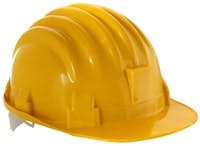Veolia Water North America outperformed public municipal systems as well as private-industry water, wastewater and other comparable utility systems, in the area of safety for the sixth year in a row as compared to the most recent data available from the Bureau of Labor Statistics.
In 2012, approximately 98% of all Veolia Water’s facilities marked no lost-time milestones ranging from one year to 27 years. Of these, 44 projects have achieved a no lost-time incident milestone of at least 15 years, and 13 have achieved that milestone for at least 20 years. In addition, the company’s industrial operations, which accounted for 1.1 million man-hours last year, had zero lost-time incidents. Lost time incidents are defined as injuries or illnesses resulting in days away from work. Statistically, Veolia’s 2012 Lost-Time Incidence Rate was a significant 86% below the national average for municipal operations and 87% below the national average for private sector operators.
Moreover, Veolia Water’s total Recordable Incidence Rate—which includes medical treatment, restrictions and transfers, and lost-time injuries or illnesses—came in at 61% below the national average for municipal operations and 54% below the national average for private operators.
“Worker safety is a top priority at Veolia. We focus on being the safest place to work in the water industry, period,” said Laurent Auguste, president and CEO of Veolia Water Americas. “Our focus on safety is reinforced by our numbers and by our safety culture. Yet our ambition is to always increase safety, to always improve.”
Two of Veolia Water’s facilities were recipients of the George W. Burke Safety Award in 2012: the Lynn, Mass. Wastewater Treatment Plant and the Haldimand County, Ontario, Canada Wastewater Treatment Plant. Veolia Water’s Streator, Ill. Wastewater Treatment Plant will also be receiving the award in 2013. The Burke Award is given annually by the Water Environment Federation to a municipal or industrial wastewater facility for promoting an active and effective safety program. Only one recipient is awarded per state/province.
Additional safety accolades include the Veolia Water-operated Fort Knox, Ky. wastewater treatment facility, which received the prominent OSHA VPP Star status in October 2012. This award recognizes and promotes exemplary safety and health performance in the workplace and represents the highest safety honor that can be given to a company. At the time of the presentation, there were only three other wastewater treatment facilities in the U.S. with the OSHA Star designation.
“At Veolia Water, safety is integral to our culture and everyone is held accountable for safety performance – from executives to shift employees,” said Dan Ryan, executive vice president, management systems and health and safety. “In the approximately 550 communities and more than 100 industrial sites we serve, our employees are held to uniform safety standards and we have programs in place to continuously support worker and workplace safety. And, while 2012’s performance is impressive, we believe that wherever better is possible, that good is not enough. Therefore we maintain our continuous improvement track one task and one day at a time.”
Source: Veolia Water North America


